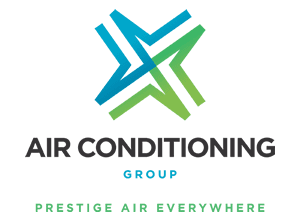Imagine this: it’s a sweltering summer afternoon, and all you want is to escape into the refreshing coolness of your home. Instead, you’re met with lukewarm air blowing from your vents or, worse, a symphony of rattles and groans from your air conditioning unit. Sound familiar?
An ageing air conditioning system can bring an avalanche of problems—escalating energy bills, odd noises, frequent repairs, and an inability to keep your home comfortably cool. If any of this strikes a chord, it might be time to bid farewell to your old system and look into an upgrade.
1. Escalating Energy Bills
Have you noticed a sharp rise in your energy bills, even though you haven’t changed your usage habits? This could be a sign that your air conditioning system is no longer running efficiently. Older systems often struggle to perform, consuming excessive amounts of power as they try to keep up with your cooling demands. This inefficiency doesn’t just drain your wallet; it also puts undue strain on the environment.
Replacing your old unit with a modern, energy-efficient system could drastically cut your monthly bills. The latest models, like those offered by Air Conditioning Group, are designed with advanced technology to optimise performance while keeping energy consumption in check. So instead of watching your money vanish into thin air, you could enjoy cool comfort that’s kind to both your budget and the planet.
2. Odd Noises
Strange noises coming from your air conditioning unit are often an early indicator of internal issues. Sounds like banging, rattling, buzzing, or screeching could point to loose parts, motor problems, or failing components such as the compressor or fan. While it might be tempting to ignore these noises, they rarely resolve themselves and usually worsen over time.
Each type of noise often corresponds to a specific problem. For example, a buzzing sound could indicate electrical issues, while a grinding noise might suggest that the bearings in the motor are wearing out. These issues not only reduce the system’s performance but can also cause further damage if left unaddressed.
Modern air conditioning systems are designed to operate almost silently, providing a noticeable improvement in comfort and peace of mind. If your current unit sounds like it’s ready to fall apart, upgrading to a newer, quieter model can enhance your home environment significantly.
3. Frequent Repairs
While occasional repairs are a normal part of owning an air conditioning system, repeated breakdowns can quickly become a financial burden. If you find yourself calling in a technician several times a year, it’s worth calculating the cumulative cost of those repairs. In many cases, frequent fixes can add up to the price of a brand-new system.
Older systems are also more likely to have parts that are difficult—or even impossible—to source, leading to longer repair times and higher costs. When repairs start becoming more frequent and expensive, it’s often a sign that the system is nearing the end of its lifespan.
Upgrading to a new system eliminates the stress of unexpected breakdowns and offers the reliability you need during the hottest summer days or the chilliest winter nights. New systems also come with warranties, giving you added protection and peace of mind.
4. Ineffective Cooling
An air conditioning system’s primary job is to keep your home comfortable, but ageing units often struggle with this basic function. Over time, components like the compressor, evaporator coils, and refrigerant lines wear out, reducing the system’s ability to cool your home effectively. This can lead to inconsistent temperatures, where some rooms feel too warm while others are overly cold.
This lack of uniform cooling can be particularly frustrating in larger homes or spaces with varying sun exposure. While maintenance can help to some extent, there comes a point when no amount of servicing can restore the system to its original performance.
Modern air conditioning systems are designed with features like zone control and advanced airflow management to ensure even cooling throughout your home.
5. Poor Air Quality
If you’ve noticed stale or stuffy air in your home, an ageing air conditioning system could be to blame. Over time, filters, ducts, and internal components can become clogged with dust, mould, and other allergens. Instead of circulating fresh, clean air, the system may spread these pollutants throughout your home, exacerbating allergies and other respiratory issues.
Modern air conditioning systems are designed with advanced filtration technologies that improve indoor air quality. They not only keep your home cool but also help create a healthier living environment by reducing allergens and odours. If poor air quality has become a persistent issue, upgrading your AC could make a world of difference for your comfort and well-being.
Ready for an Upgrade?
An old air conditioning system isn’t just a minor inconvenience—it’s a hidden cost in energy bills, repairs, and reduced comfort. Whether it’s struggling to cool your home, making strange noises, or failing to provide fresh, clean air, the signs are clear: it’s time to upgrade.
When you’re ready to make the switch, trust the experts at Air Conditioning Group. With tailored solutions designed for New Zealand’s unique climate, we’ll help you find the perfect system to keep your home comfortable year-round.


Leave A Comment